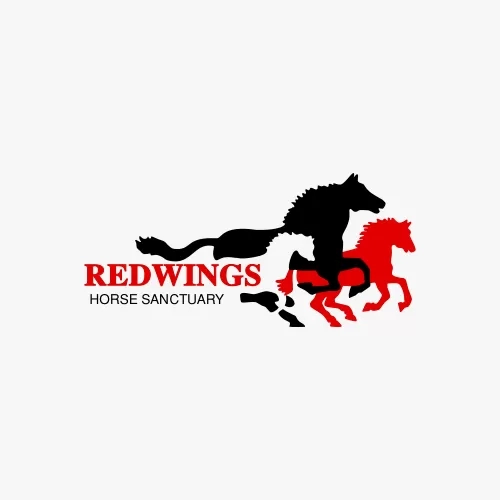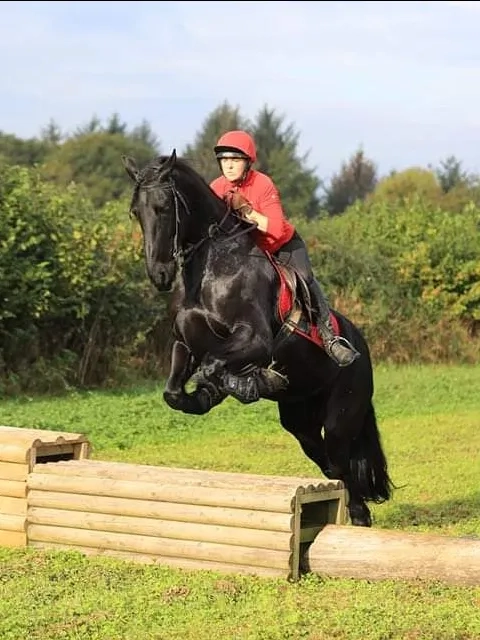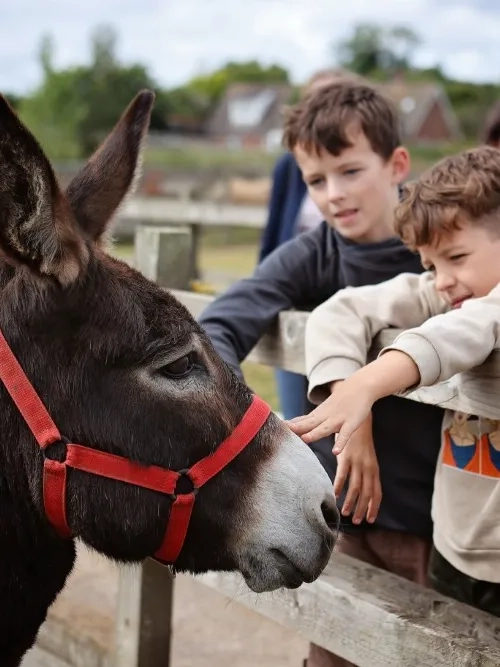27 April 2018

Statistics released by the RSPCA this April revealed the number of horses rescued by the organisation had reached a four-year high.
These figures highlight that the UK remains in the grip of a horse crisis where there are simply too many horses and too few responsible owners to offer them a home, leading to shocking levels of neglect and abandonment.
At Redwings, we too have seen an increase in the number of horses in need. This winter, November 2017 to March 2018, we attended 102 welfare cases involving 413 equines – a 67% increase in cases and a 71% increase in equines compared to 2016/17.
Similarly, since the start of this year, we have seen a 13% increase in the number of owners asking Redwings to take on their horses after struggling to provide for them.
Redwings’ Head of Welfare, Nic de Brauwere, spoke about the reasons behind the horse crisis on the BBC Victoria Derbyshire show on 24th April 2018:
Why are so many horses being 'dumped and left to die'?
"A lot of people want the pet that looks cute, or there or those who want to make money from it..."
Nic De Brauwere is Head of Welfare at @RedwingsHS
Our film: https://t.co/qTP1Lv9QDU
Read more: https://t.co/LhjR8nE642 pic.twitter.com/XeaaLhfpJp— Victoria Derbyshire (@VictoriaLIVE) April 24, 2018
If you find a neglected or abandoned horse, here’s everything you need to know, from making a welfare report to understanding the law:
How do I report a welfare concern?
In an emergency, call the RSPCA 24-hour cruelty line on 0300 1234 999.
Concerns for abandoned or neglected horses can also be lodged with our Redwings welfare line on 01508 481008, Monday to Friday, 9am to 5pm.
Animals found wandering into residential areas or straying onto roads need to be reported to the police. If you feel there is an immediate danger to road users call 999, otherwise call the non-emergency line 101.
Please be aware that welfare concerns CANNOT be submitted via social media as this causes unnecessary delays to information gathering and a Field Officer attending.
What information do I need to make a report?
In all circumstances, providing detailed, accurate and up-to-date information about the equines and their location is vital.
For a Field Officer to attend a potential welfare case, they need to know exactly where the horse is, whether it is alone or in a group, have a full description of its perceived condition (very thin, lame, suffering from a wound etc) and know what it looks like, for example its size, colouring and any markings, so it is easily identifiable.
Where possible, emailing a current photograph of the horse is very helpful which must be taken by you as the “reporter” and not passed on from a third party. But photographs and video footage should not be obtained if it involves trespassing or putting yourself or others at risk.

What laws protect horses?
In all circumstances, Redwings (and all welfare organisations) must act within the law.
We cannot simply remove an equine from a situation without the backing of the police or a local authority and only when the level of care provided falls below minimum legal standards. To do otherwise could jeopardise prosecutions and potentially see the horse returned to the owner.
There are Acts that protect the rights of animals that Redwings has been instrumental in helping to pass into law:
The Animal Welfare Act 2006
The Animal Welfare Act 2006 is at the heart of animal welfare legislation. Under this Act, an equine can only be removed if a vet certifies it to be ‘suffering’ or is ‘likely to suffer if its circumstances do not change’.
The law was key to the rescue of 97 severely neglected horses, ponies and donkeys from Spindle Farm, Amersham, in January 2008. Read this example of the Animal Welfare Act in practice here. (PDF 3.3 MB)
Click here for further information about the Animal Welfare Act and how we use it.
The Control of Horses Act 2015
The Control of Horses Act 2015 was introduced to tackle horses being illegally grazed, known as fly-grazing. This gives local authorities and landowners the ability to seize fly-grazed horses within a reduced timeframe.
Not to be confused with abandonment, fly-grazing is the deliberate grazing of horses on land without the landowner/occupier’s permission. In some cases, the horse may have originally been there legitimately, but the agreement between the landowner/occupier and the horse’s owner has terminated and the horses have not been moved on.
Sadly fly-grazed horses are often left to fend for themselves and kept on unsuitable land without sufficient fencing, shelter, water and forage, increasing their risk of preventable illness.
If you’re a landowner, livery yard owner or local authority, click here for fly-grazing prevention tips and what to do if you become a victim.

What happens during a rescue?
Following a report, a member of the Redwings welfare team will decide whether there is a cause for concern and if a visit is needed. If so, a Field Officer will attend to make an assessment about what should happen next. If we are unable to attend due to location, we will share the information with colleagues from other welfare organisations in the area.
In many cases, giving advice to an owner is enough to see an improvement in their horse’s welfare. Redwings, like many welfare organisations, is operating at maximum capacity with over 1,500 equines in our care. Providing education and support for owners is therefore vital in preventing more equines being brought unnecessarily into sanctuaries.
When improvements are not made, or in more serious cases where the horses are deemed to already be in a state of suffering, they may be removed under the Animal Welfare Act. Click here to see the full stages of a rescue.
Can I rescue a horse myself?
When you come across an animal you believe to be suffering, the natural instinct is to help. Please DO NOT try to rescue a horse yourself. Just like welfare organisations, you must act within the law.
Buying a horse from an owner you believe is neglecting their animals only profits the unscrupulous owner and does not hold them to account. Caring for a horse costs at least £3,000 per year and is a lifelong commitment of time and resources. If you do not have the capabilities or experience, you could quickly find yourself overwhelmed.
The best way to help is to report your concerns to the RSPCA or a welfare organisation, such as Redwings, using the guidance above. If necessary, we have the expertise, legal knowledge and contacts with other agencies, such as the police and local authorities, to bring horses to places of safety and return them to health.
Most importantly, we have extensive experience of working with owners to improve their knowledge to not just influence the way they care for horses today, but horses in the future too.

I’d like to know more
If you have any questions or concerns about neglect, abandonment or fly-grazing, please call 01508 481000 or email info@redwings.co.uk.

Redwings Press Office
Find out more about Redwings Press Office



